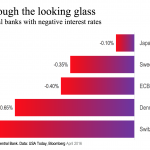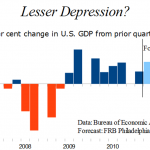
What if the negative interest rate policies (NIRP) that have been adopted by major central banks had effects opposite what was intended? The idea is to fight DEflation and to nudge consumers to spend by penalizing banks for keeping money on deposit. The theory is that banks will lend rather [continue reading . . . ]
